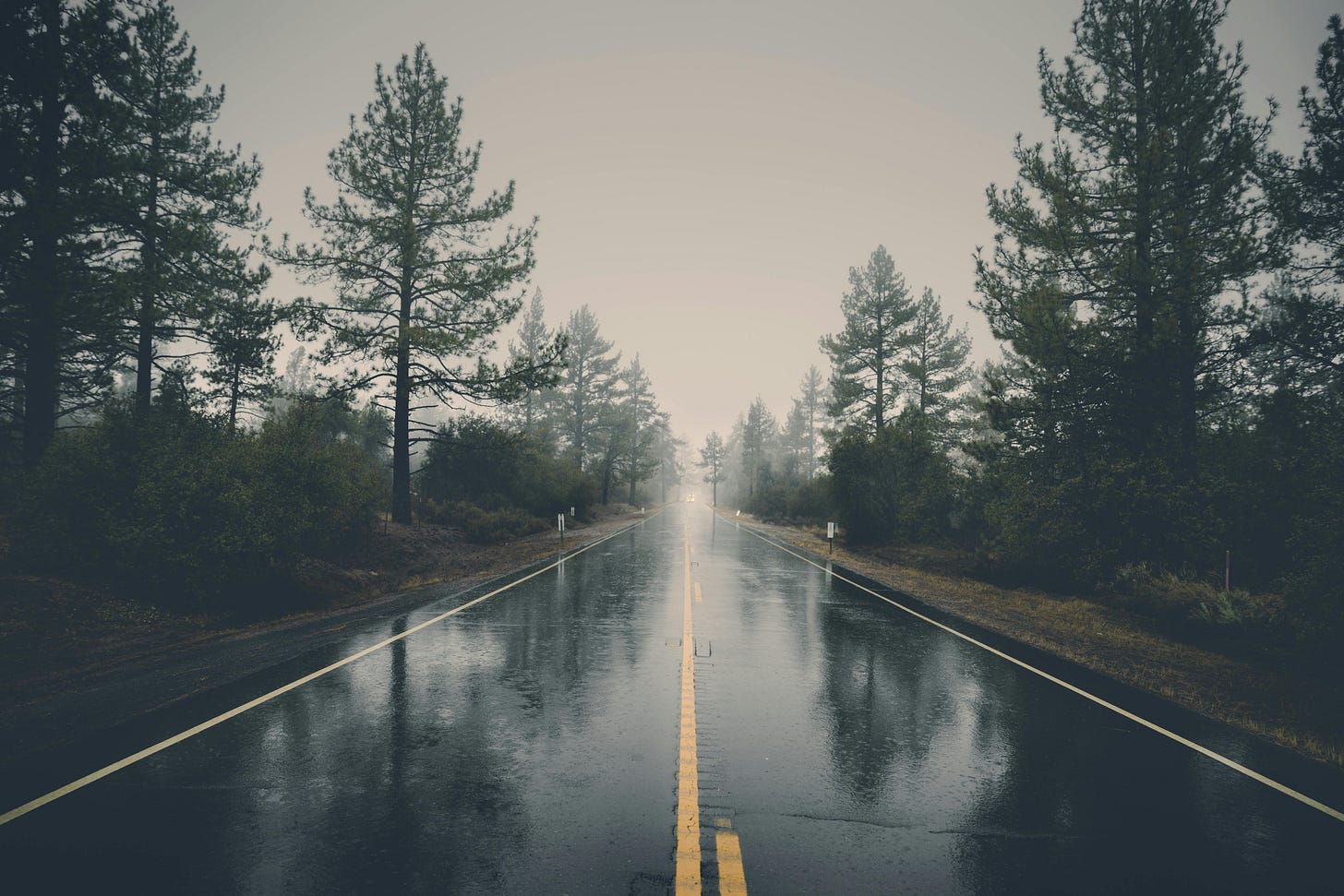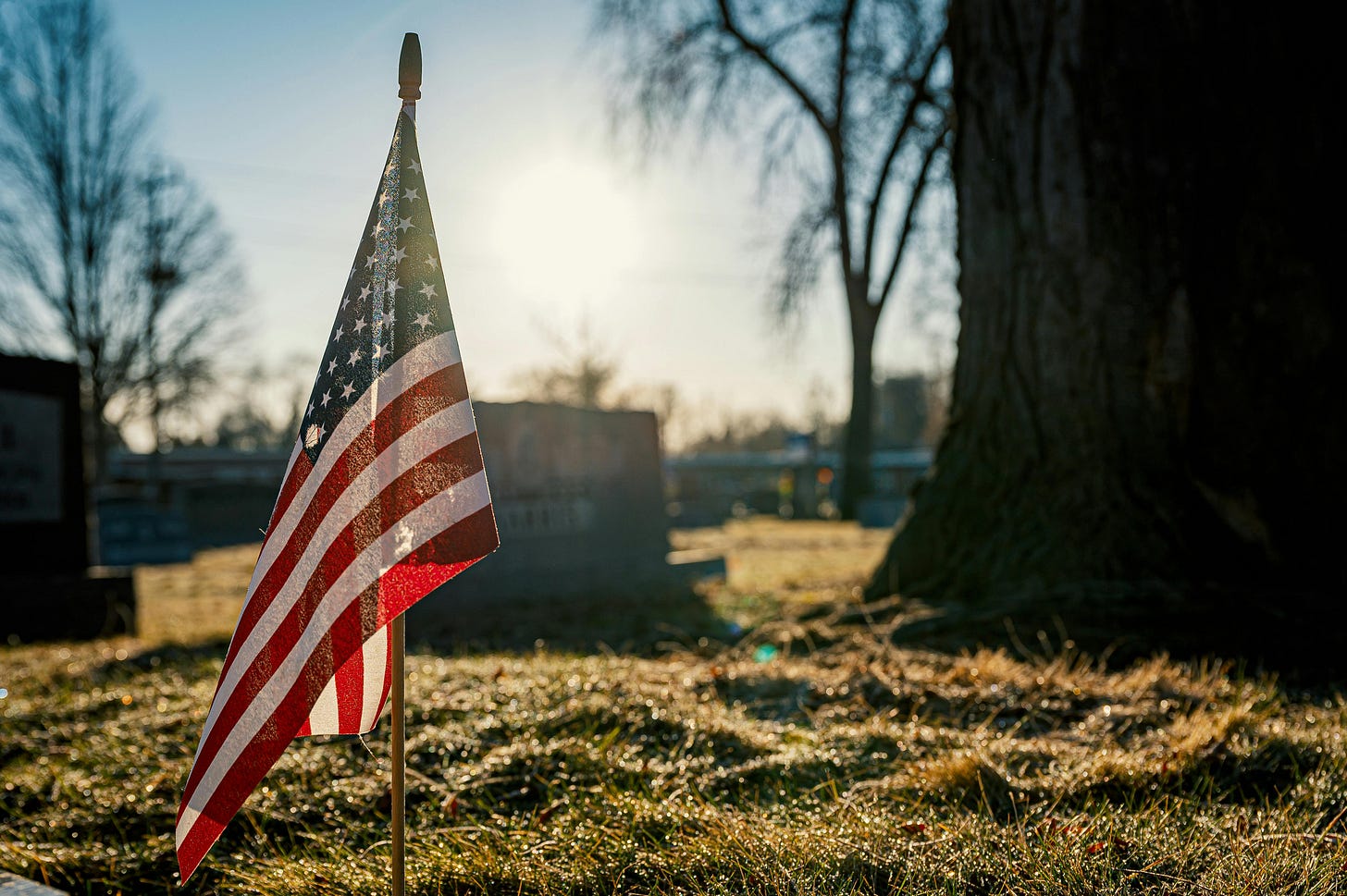The Blues & Billie Armstrong 56
RAINING IN MY HEART
Previously in The Blues & Billie Armstrong…
My legs were kicked out from under me with no warning, I heard my knees crack down on the linoleum and the pain shot up my thighs. I was slammed to the floor, my head turned to the side, looking over at Billie’s face in the same position. And those fierce, wet jade eyes.
The county had built a new correctional facility several years before, out among the bare hills a few miles north of Lupoyoma City.
When inmates are released, there’s no ride to town, no bus, and no public phone. Sticking to the paved streets it’s a five-mile trek into town in whatever weather the sky is offering that day. The officers who processed me out returned my phone, but the battery was dead. The rain started to fall the moment they ushered me out the front door. I stood in the parking lot staring at the black screen on the phone, then I started to walk.
From behind me I heard Sonny’s voice. “Hey, hold up.” Apparently, they had processed him right after me. I stopped. “Got a phone?” he said.
“Dead,” I said, “You?”
“Stashed back at the bar.”
I started walking again.
“Maybe they’d let us make a call at the reception desk,” he said.
“I’m not going back in there.”
“Long walk in the rain,” he said. “And the wind.”
I said, “At least it’s not cold.” Then the rain and a chilly wind came harder, seemingly on cue. I had left my sportscoat draped over the passenger seat in the Cadillac, which was still parked in front of the bar. The knit polo I was wearing did not qualify as rain gear. We walked together, each with our heads down and our eyes on a few yards of pavement in front of our feet. We walked out to the road that leads back to Lupoyoma City. A few cars went by but we didn’t try to hitch a ride. Who would stop for two sopping-wet old men who had obviously spent the night in jail?
The shortcut to town led through Lupoyoma Cemetery, over the back fence and down a brushy hill to the football field behind the high school and so on, shaving a couple miles off the trip. I didn’t want to go. The cemetery held nothing but dread for me. I never got out of Pop’s truck at my mother’s burial, and I’d never been to the place since.
We walked through the open gate, an arching wrought-iron gothic assembly anchored on both sides to squarish concrete pillars topped with big winged lions. The main road sloped up at a steady incline between rows and columns of headstones and monuments nestled in a wet carpet of grass. I said, “I haven’t been here in a long while. Seems funny it happens this way.”
“Maybe it’s time,” Sonny said, as if he understood. He looked toward a walkway to the right. “She’s down that way if you want to see her,” he said.
“How would you know?”
“Well,” he said. “You get old in a small town like this, you spend a lot of time at the cemetery.” He chuckled. “I literally know where the bodies are buried.”
The sun slipped through the tattering clouds and the rain slowed to a bright sputter. The breeze carried that gritty smell of fresh rain on oily asphalt. It was the first time I got a good look at him outside the gloom of the bar. He had to be in his mid-sixties by now, but he looked lean and tough as a game bird. Wrinkled and dark, and despite the slight limp, steady on his feet. Brown carpenter’s pants and a shortsleeve henley, that long frizzy ponytail streaked with gray. He turned down the path and I followed until he stopped and pointed with a nod of his head, then looked away, I assumed out of courtesy.
EVELYN MEDINA KING… OUR ‘EVIE’… 1938-1969.
My mother’s grave lay modest and cold, a slab of concrete where a rectangle of lawn might have grown, a small bronze plaque set into the ground rather than a headstone. Not one flower. She was buried next to Pop and Molly, their legal names, Edward and Mary Medina, revealed there for what might have been the first time to many people who’d known them for decades.
Grandma Junia was buried in a different section, closer toward the crest of the hilltop, with a proper headstone in the shape of a cross, granite with chiseled lettering, all prearranged by her, I’m sure. I stood at the foot of her grave and quickly brushed my hands back and forth. “I guess that’s that.”
Sonny walked ahead, picking a way around and between graves, never walking over them, never violating that old superstition. He did not hurry, and I forgot that we were supposed to be taking a shortcut. At each graveside we visited, Sonny stood at a respectful distance, hands folded loosely in front of him, eyes on the ground or toward the distant hills.
There were two empty plots next to Grandma Junia’s. I knew one of them was reserved for my father, and it wouldn’t remain empty for long. He and I had parted on the worst of terms all those years before. And we hadn’t talked in a long time, but I occasionally heard news of him through Aunt Laurette. He was sick and bitter with lung cancer now and dying in the house on Fourth Street. Laurette had drifted into the difficult role of caregiver. She regularly pestered me to visit, and I regularly resisted. Now I looked at his future resting place, weighing guilt against resentment and arriving at futility.
“One of these was supposed to be your mother’s,” Sonny said, diverting my thoughts, “but Pop and Molly wouldn’t stand for it. I guess by now you know why.” This last thought came out like a question.
“I knew they blamed my father for her death, and I thought I knew why.” I said. “But sometimes it seems like I never really knew any of them. How can it be that you spend all that time with people and don’t know who they are?”
“They never really know you either,” he shrugged.
“Except for Billie. She could see right into me, although I could never know enough about her. Drove me crazy.”
Sonny said, “Hah! She’s a botheration alright.”
“Why’d you stick your neck out for her, anyway?” I asked. “You only knew her for a few weeks a long time ago.”
“I know what it’s like to have a small town turn against you,” he said.
We were almost at the fence.
“What about Hank?” I said.
“Wasn’t sure you’d want to see that one,” Sonny said, with a look full of memory. I nodded, and he led me back up the slope a short way, to a grassy spot surrounded by a low concrete wall.
FLOYD HENRY TIMMONS JR… PVT US ARMY… LOVING SON… 1951 - 1970.
The sun broke through the clouds and landed on the white marble headstone like a spotlight. Two tiny American flags on tiny wooden flagpoles were stuck in the manicured lawn. I nearly spat out the bile that rose to the back of my throat. I swallowed, took a sighing breath and closed my eyes against the threat of a more visible reaction. I didn’t think Sonny saw, but there were a few silent seconds before he walked on.
On the back side of the slope, Sonny weaved a path that generally headed toward the corner of the cemetery, where we could jump the fence. He stopped at one point to retie the laces on his work boots. I stopped as well and by chance noticed the plot beside me. Another small bronze plaque set in the ground. No flags here.
JAMES R COLE… PFC US ARMY… VIETNAM… 1942-1968.
Sonny raised an eyebrow at the look of recognition on my face. “Somebody you know?”
I hesitated. “No. Just a story I read in the newspaper once.”
In my head I heard the gravelly sound of Elmore James singing The Sun Is Shining (Although it’s Raining in My Heart). But I was hearing the song for myself rather than the dearly departed. Whatever I thought I knew about Evie King and the blues and J.R. Cole would always be just a story in the newspaper. Or a letter, or my own mind. Of course it matters what you believe, Billie had said once. But I wanted more than belief. I wanted the truth. And you can’t talk the truth out of the dead. Maybe that’s the loss I was mourning that day as much as any of the souls buried on that hill.
Sonny said nothing else about Cole’s grave, and we walked on. We followed the slope down to the wire fence and climbed over and made our way through scrub oaks and brush, down the old dirt path worn into permanence by highschoolers trudging up for a smoke or a makeout tryst, then down to the wet glistening football field and across the rest of the school grounds.
When we finally reached downtown Lupoyoma City we walked along Main Street, past the houses and stores and offices that were the landmarks of my childhood, and eventually we reached the old Call & Record building, now converted to a health food store after the paper had moved to a new building on the south end of town. I stopped and peered into the front windows and saw my own reflection.
Sonny stopped too, and considered the building with his hands in his pockets. Then, as we approached the Fourth Street intersection, he stopped and looked down the street toward the lake, and he said, “Laurette still comes by the bar now and then. When she can get away. It’s been hard on her taking care of your father.”
“I’m not sure I see the point in showing up for one last argument with him.” I said.
“Hey, no judgement,” Sonny said. “Point is, I know she would like to see you.”
I let that suggestion fall and kept walking up Main Street.
The Blues & Billie Armstrong is a work of fiction. Names, characters, businesses, places, events and incidents in this book are either the product of the author's imagination or used in a fictitious manner. Any resemblance of the fictional characters to actual persons, living or dead, is purely coincidental.
© All Rights Reserved



